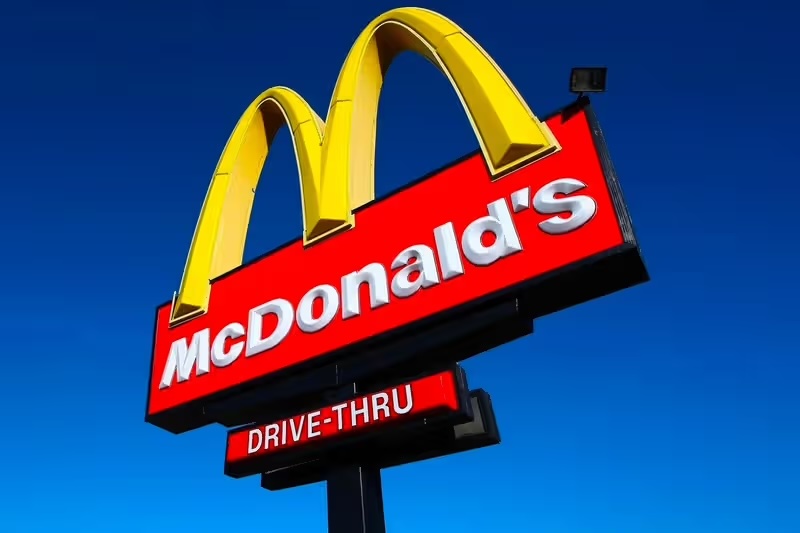Corporations often stay out of politics out of fear of alienating part of their audience. But sometimes they don’t have a choice. McDonald’s, one of the biggest fast food restaurant chains in the world, has found itself the focus of presidential coverage.
On Sunday Republican presidential candidate Donald Trump held a staged photo op in a closed restaurant in which he put on a McDonald’s apron, put fries into cartons, and talked to pre-selected supporters (fake customers) at the drive through window in the key swing state of Pennsylvania. The selection of the fast food chain was likely in response to the way in which during the campaign Democratic presidential candidate Kamala Harris has referenced to her past job working at McDonald’s as a college student and her husband Doug Emhoff has said he was a McDonald’s employee of the month in the ‘80s when he was in high school. Why McDonald’s? The candidates were likely trying to portray themselves as relatable people who understand the joys and concerns of the middle-class voters they need to reach in order to win the election.
So, what do you do when your organization is the focus of unexpected attention? McDonald’s served up a fully baked statement designed to quiet the critics faster than they could fill an order. It was a master class in crisis communications. Here are some of the key ingredients they used.
- Timing is everything – As McDonald’s knows from their business model, their food is best received when it’s served fast and hot. The fast food giant didn’t sit back and wait when critical memes and posts came out claiming Trump’s appearance meant McDonald’s had endorsed him, some even suggesting people should boycott their restaurants. McDonald’s acted quickly, issuing a statement right away. Avoiding controversy by waiting for the news cycle to move on is too passive and can allow opinions and a harmful narrative to bake in.
This is an internal statement to the McDonald’s system from the US Senior Leadership Team regarding today’s visit by the Trump campaign to a local franchisee in Pennsylvania. The statement outlines the origins of the event, the company’s response, and an invitation extended to… pic.twitter.com/1GntbmDbbY
— McFranchisee (@McFranchisee) October 20, 2024
- Address the criticism directly – McDonald’s used their statement to directly address their critics. They stated, “we are not a political brand” and don’t endorse candidates. They used humor effectively by saying “We are not red or blue, we are golden,” a direct reference to their “golden arches” logo. They also made it clear that the idea to grant the former President’s request to have the staged event at the restaurant was instigated by the franchisee and not the corporation.
- Convey the content you want – In this case, McDonald’s made sure to include content consistent with their chosen brand and what they called one of their core values: “We open our doors to everyone.” So rather than seeing the attention as a minus, they spun it as a plus by saying the attention is a “testament to how much McDonald’s resonates with so many Americans.” Remembering the organization’s identity during a crisis and reinforcing it through communication is essential.
Time will tell the long term effects of Trump’s visit and Harris’ former job on McDonald’s, but as DePaul University marketing professor Bruce Newman pointed out in the Financial Review, “They look like the company that is getting the attention of the presidential candidates and it heightens awareness of the brand.”
If you are facing an unexpected situation that was not of your making – being proactive, addressing your critics and conveying language consistent with your brand can help you get through it quickly and effectively. For more crisis communications tips, visit our Top 10 Tips for Crisis Communications website.


